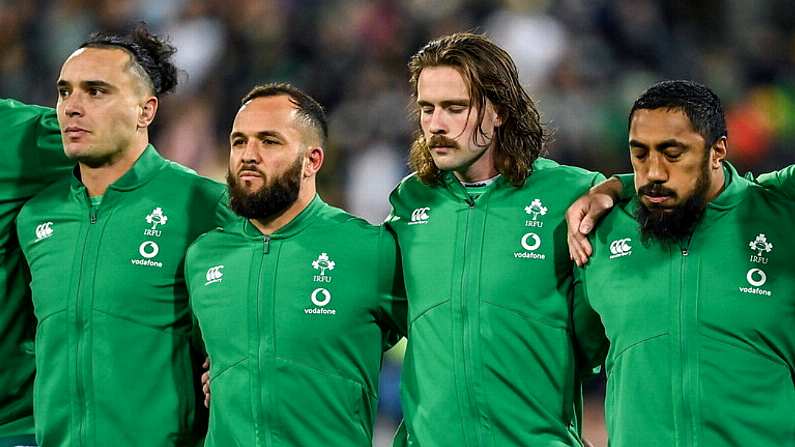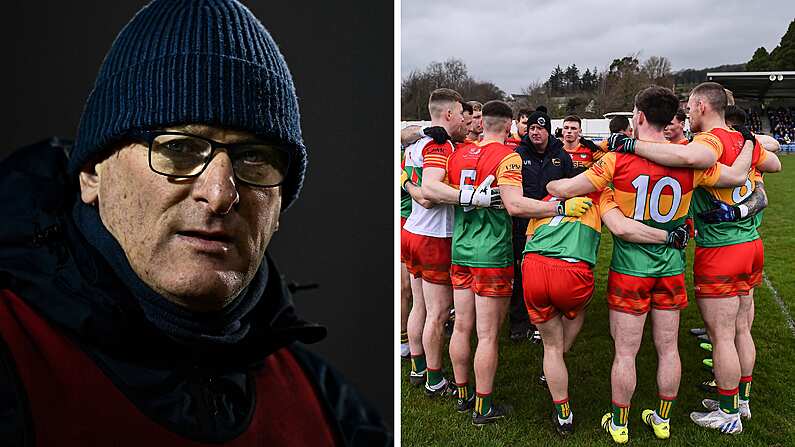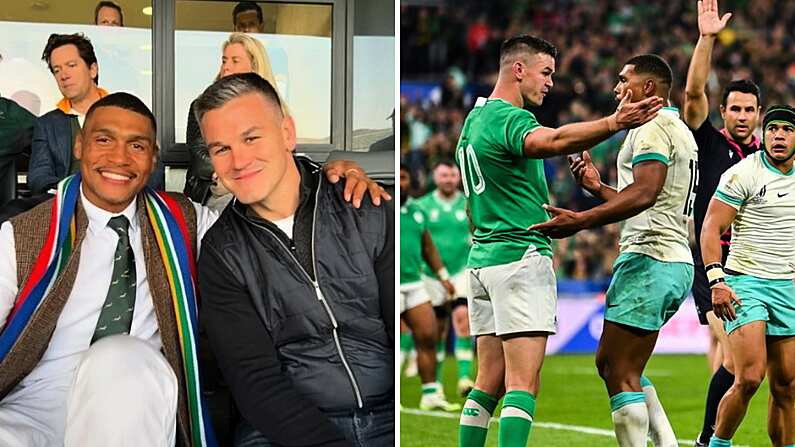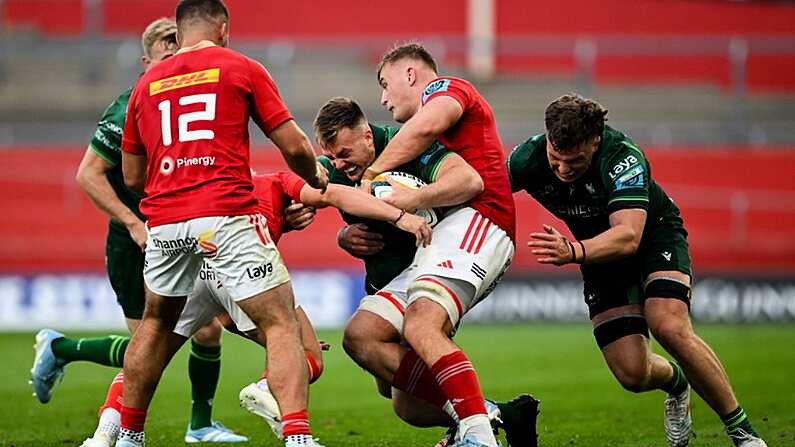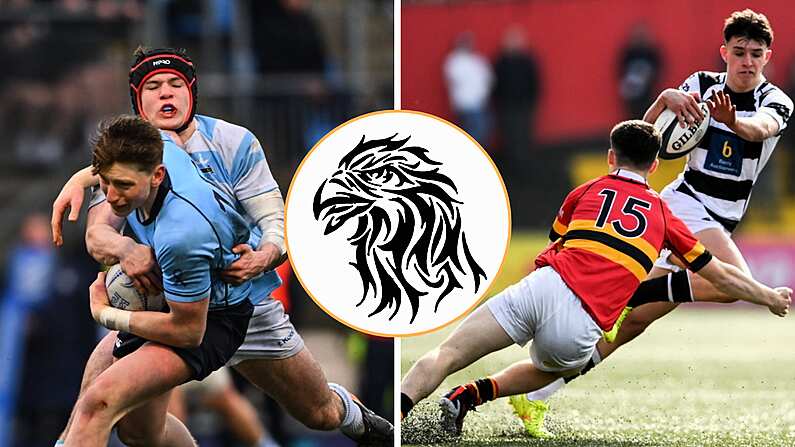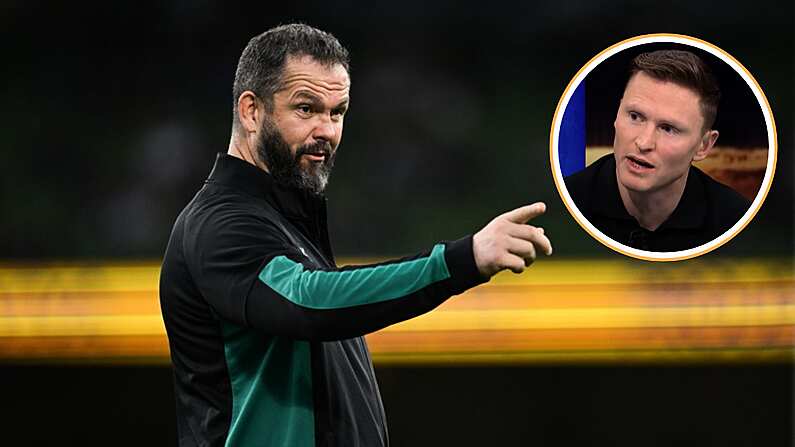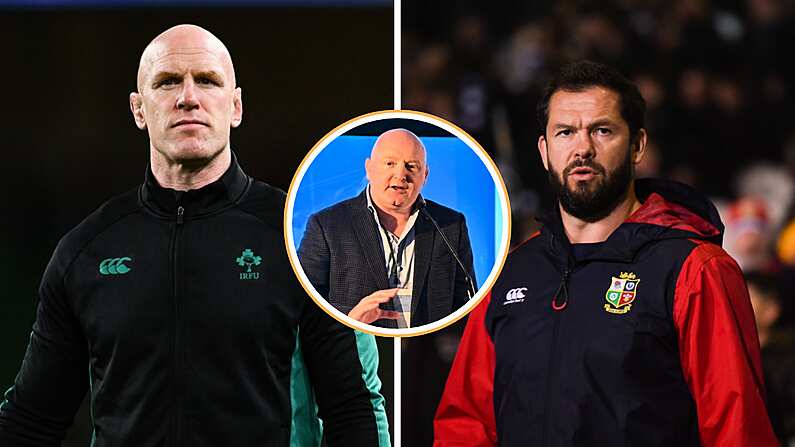In the last 18 months, the Irish team have become one of the dominant forces in world rugby, and players who grew up outside of Ireland have contributed massively to that success.
World Rugby allows players to declare for a nation other than that of their birth if they are uncapped at test level and living in their new country for over five years (up until the end of 2021, the requirement was three years).
This situation has allowed the likes of Bundee Aki, Jamison Gibson-Park, and James Lowe to declare for Ireland over the past decade.
All three have become nailed-down starters in Andy Farrell's Ireland XV over the past 24 months or so, with Aki, in particular, being one of the standout players in both the 2023 Six Nations and World Cup campaigns.
However, it appears as though some are unimpressed with the current guidelines from World Rugby. The Telegraph's chief sports writer Oliver Brown published a questionable piece on Wednesday which took aim at the New Zealand-born Irish trio, among other Six Nations stars, as he questioned the current World Rugby eligibility laws.
READ HERE: Ex-Wales Star Explains Why Loss To Ireland 'Didn't Feel Like An International Match'
READ HERE: Clive Woodward Hammers England Over 'Nonsense' Scotland Celebrations
Rugby fans defend Irish players after bizarre Telegraph piece
The piece was published by Telegraph late on Wednesday morning, with Brown suggesting that the concept of national pride is disappearing from modern rugby.
After citing several examples of players who had declared for England in recent years having been born elsewhere, Brown questioned whether developing a sense of affiliation with a 'new' country was "sufficient."
England are still reeling from a fourth consecutive defeat to Scotland last Saturday, and the timing of this piece's publication seems questionable given South African-born Duhan van der Merwe's virtuosic performance at Murrayfield.
Brown's statement questioning whether that Scotland team "can be called authentically Scottish at all" would stand as the most provocative line of the piece, were it not for the questionable tirade which follows against three of Irish rugby's leading stars.
Even the Irish, heralded as the gold standard in everything they touch, know what it means to exploit rugby’s nebulous definitions of nationhood. Bundee Aki, James Lowe and Jamison Gibson-Park are three players who have underpinned Ireland’s transformation into Grand Slam winners and, for a while, the world’s No 1-ranked side.
But all of them were integrated from New Zealand’s professional rugby system, targeted well into adulthood for moves to Ireland so that they could fulfil the residency rules. Lowe is about as Irish as McDonald’s Shamrock Shake, coming to the country when he was 25 and having played for the Maori All Blacks against the British and Irish Lions.
Here is a player who, on recognising in his mid-20s that he was never going to realise his All Black dreams, swapped Nelson for Dublin on the assurance that he would be wearing green three years later. The decision, while an emphatic success for his CV, casts an unflattering reflection on the romance of Test rugby.
Whatever any fan's feelings towards the Irish team or the rugby capabilities of any player on the pitch, Brown's tirade against Lowe feels especially vicious and distasteful. The less said about the 'McDonald's Shamrock Shake' line, the better.
This author is not alone in finding the overall argument of the piece objectionable, with Brown suggesting that rugby has become too accommodating to those moving across borders.
The concept of patriotism and pride is indeed a core part of any international sport - but that is where the argument falls.
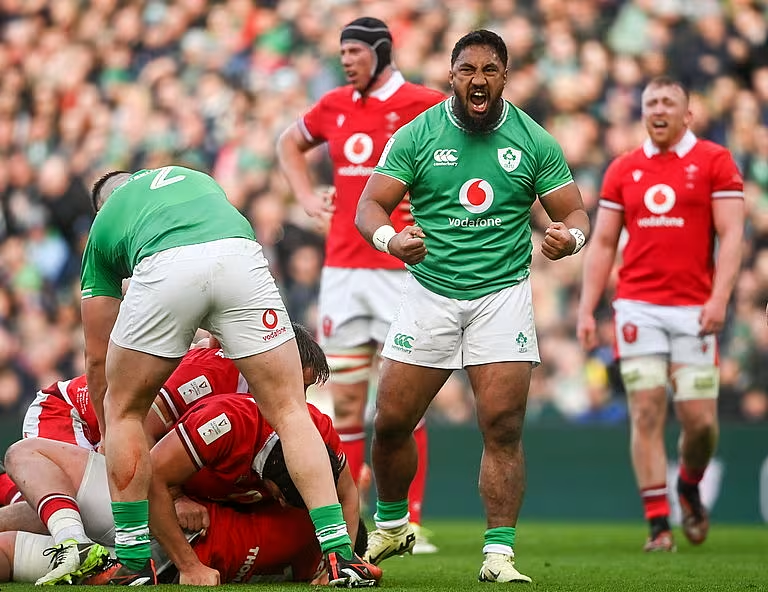
24 February 2024; Bundee Aki of Ireland celebrates winning a penalty during the Guinness Six Nations Rugby Championship match between Ireland and Wales at Aviva Stadium in Dublin. Photo by Sam Barnes/Sportsfile
Take, for example, Bundee Aki. Even if you were to agree with the central conceit of Brown's article - that rugby players should not be allowed to declare for a country other than that of their birth or familial lineage - one would accept that Aki's introduction into the Irish setup has seem him become indispensable in recent years.
But to focus solely on his rugby ability would be to turn a blind eye to Aki's clear devotion to his newfound home. An emotional interview with ITV ahead of last weekend's Six Nations clash with Wales summed up just how much Ireland - and especially Galway - means to Aki and his family, and Irishness now courses through his veins - as evidenced by his use of Irish colloquialisms post-match on Saturday.
Jamison Gibson-Park became an Irish citizen in the aftermath of the World Cup, while James Lowe's father has become a diehard Irish fan cheering on his son. Do these players need to do more to prove their Irishness? And if so, why?
Not that any of this matters in the grand scheme of things. Players are eligible to play for Ireland as per the rulebook and, as long as they show up and take pride in representing their country (and do the business on the pitch), it should not matter how they have gotten there.
Needless to say, Brown's comments caused a stir among rugby fans on social media.
Some players pointed out the hypocrisy of accepting players who are eligible through their family lineage and not those who have made a new country their home, while others took serious issue with the seemingly hostile language chosen by the Telegraph writer.
This debate’s funny because people accept players representing a country on grandparental links before they accept residency grounds.
As if the happy accident of where one grandparent was born is innately a stronger tie to a country than living and working in it for five years. https://t.co/Q1nJ00cNMd— A-P (@rugby_ap) February 28, 2024
This has made my blood boil more than it should.
Bundee Aki’s lived a third of his life in Ireland, he’s raised four children in Ireland, he belts out Amhrán na bhFiann with tears streaming down his face. ‘Gun for hire’? How insulting. pic.twitter.com/8NspIgGk7r— Jamie Weir (@jamiecweir) February 28, 2024
It's hard to picture a world in which Bundee Aki, Jamison Gibson-Park, and James Lowe would ever not have the support of Irish rugby fans - and long may that continue.

